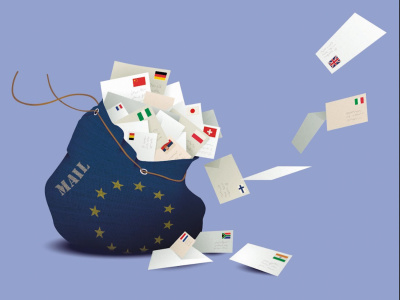
The European Commission, civil society organisations and the private sector – When talking the same language isn’t quite enough
The Economist magazine has an amusing article that does the rounds from time to time that translates what a native english speaker says (e.g. “that’s not bad”), what the listener understands (“that’s good or very good”) and what the speaker meant (“that’s poor or mediocre”).
This was brought to mind while moderating a recent EC consultation with CSOs and the private sector. This was an important opportunity for both private sector representatives and civil society to provide concrete inputs into the EC’s forthcoming communication that will guide how they, and to a certain degree EU member states, will engage with the private sector for development in the coming years. Discussions centred around providing inputs to the 10 issues and 31 concrete questions identified in the EC’s issues paper. This included things like: “When, and under what conditions, should the EU engage with companies to encourage innovation and facilitate private sector investment into low-income markets?”.
ECDPM often advocates the need for a common language among stakeholders to advance on development issues. So what was striking, and initially pleasing in a room of 60 people evenly split between private sector and NGO-types, was that for once everyone was speaking the same language. Exactly the same.
But I suddenly became aware of the danger of everyone adopting the same language. It almost seems like we may soon be entering an age of computer-generated interventions (call them ‘CGIs’), with combinations of development-jargon to satisfy people across all sectors, walks of life, and anything else: sustainable, responsible, accountable, transparency, ownership, small-holders, markets, food-security, watchdogs, pilots, risk, scaling up, enabling environment, capacity, SMEs, partnerships, Post-2015s…
But as the Economist article highlights, using the same words doesn’t always mean the same thing. So rather than representing a much-awaited rapprochement of different groups around an agreed set of ideas, using such similar language may make it harder to address the differences in views. As such, and given their similar well-meaning goals, there was often little to distinguish between interventions by multi-national companies or NGOs focusing on rural poverty, for example.
So in many respects I wonder how much the consultation will help the EC in preparing their communication. Rather than getting a better grasp on the competing views of how to define and design mechanisms for enforcing criteria for engaging with firms, for example, they may struggle to get past the statement of broad principles that few would disagree with.
Who Drives Development Again?
Beyond this, two elements were strikingly absent from the discussions, whether CGIs or not. One was developing country governments. Although this was a Brussels-based consultation and the EC is carrying out simultaneous consultations in their partner countries (the results from which I would be keen to learn) almost nobody in the room mentioned national governments. The continuous underlying assumption almost seemed to be that if the EC would be more principled and “focus on…(insert CGI)” then governments would automatically put in place the necessary policies and bingo, development outcome a) would take place, something none in the room would presumably ever suggest in a one-to-one conversation.
So the second missing element was politics. Yes, there was mention of the imbalance of power between multinational companies and small-scale producers. Yes, there was a proposition that the EC support systems that render production mechanisms more democratic, through cooperatives and the like. But how?
What are the approaches donors such as the EC need to take to deal with these power imbalances or supporting ‘democratic production methods’ while juggling with questions of scale and depth of impact? And how to ensure local political support for any such approaches? Any intervention, whether backed with aid or not, is political in nature, so how can a donor like the EC ensure that their approaches adapt sufficiently to circumstances and find the right balance between maximising the impact of investments taking place anyway, encourage new investments to create jobs, while minimising potential harm? What would it entail for the EC to be whatOxfam called “a critical friend”, and work with companies while simultaneously encouraging them to be more ‘developmental’? Even with mining companies there are potential opportunities that need to be looked at (on which my colleague Isabelle Ramdoo has written here and here) but by talking only at the level of general principles, it is hard to really grapple with any of these issues.
So ultimately I’m not sure how much the EC actually learned from this consultation (although they are also receiving written inputs).
What did emerge though is that the EC and other donors could learn a lot from some of the CSO-business partnerships that were mentioned and that struggle to scale up – again a common point of reference across the private sector and CSOs. Who drove what aspects of the partnerships? Who had to be on board? What was the role of different actors within the involved companies, government agencies, donors, or cooperative groups? What changed to make it a success? How much of a role do donors like the EC actually have in such successes? And what was the political context around them that aided success?
Unless we can address those kinds of questions, the Anti-Politics Machine will unfortunately whir on as before, while the rest of us are sharing inoffensive jargon with each other.
The views expressed here are those of the author, and may not necessarily represent those of ECDPM.


